Helping Your Child Navigate Friendships with a Mental Health Diagnosis
14 February 2025
Navigating friendships at any age can be tricky. But when your child is diagnosed with a mental health condition, the challenge can feel even more overwhelming. As parents, we want nothing more than for our kids to feel accepted, loved, and supported by their peers. We want them to have meaningful friendships that add joy and fulfillment to their lives, but how do you help them navigate relationships while managing a mental health diagnosis?
In this guide, we'll dive into practical ways you can support your child as they build and maintain friendships, even when their mental health might add a layer of complexity to their social world. Whether your child is dealing with anxiety, depression, ADHD, or any other mental health challenge, there are strategies you can use to help them thrive in their friendships. Let’s break it down.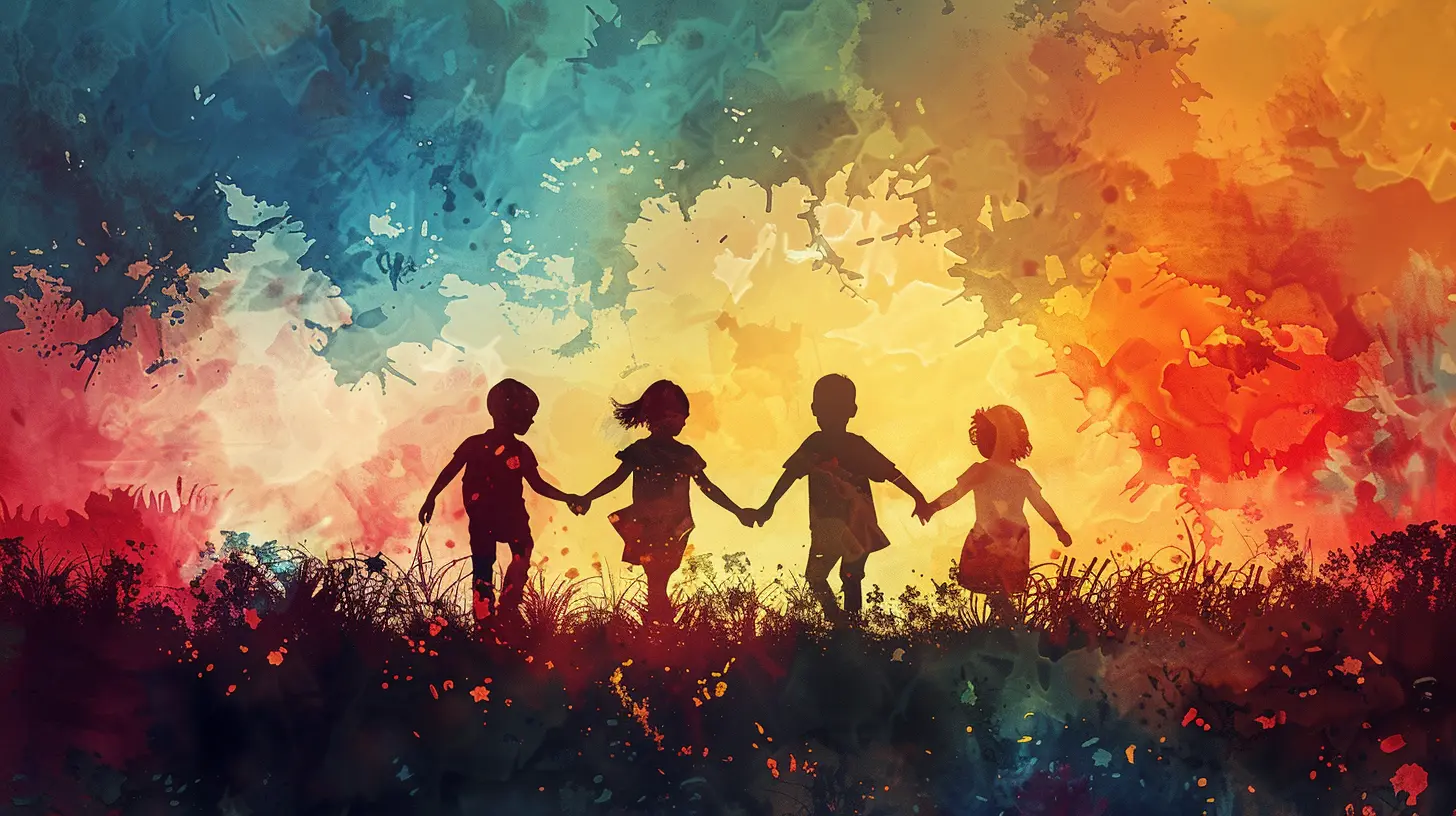
Understanding the Impact of Mental Health on Friendships
First things first, let’s talk about how mental health can affect friendships. A mental health diagnosis can sometimes make it harder for kids to connect with their peers. For example, children with anxiety might feel too nervous to reach out to others, while kids with ADHD could struggle with impulse control, making it tough to maintain stable relationships.It’s important to understand that mental health challenges aren’t just internal struggles; they often manifest in social situations. Your child may:
- Struggle with social cues: They might misinterpret facial expressions or tone of voice, which can lead to misunderstandings.
- Feel isolated: They could feel different from other kids and believe that no one understands what they’re going through.
- Experience mood swings: Changing emotions might make it hard for them to maintain consistency in friendships.
- Have trouble communicating: They might find it difficult to express their feelings or needs clearly, which can cause friction with friends.
While these challenges can be tough, they’re not impossible to overcome. With the right support and strategies, your child can build meaningful, lasting friendships.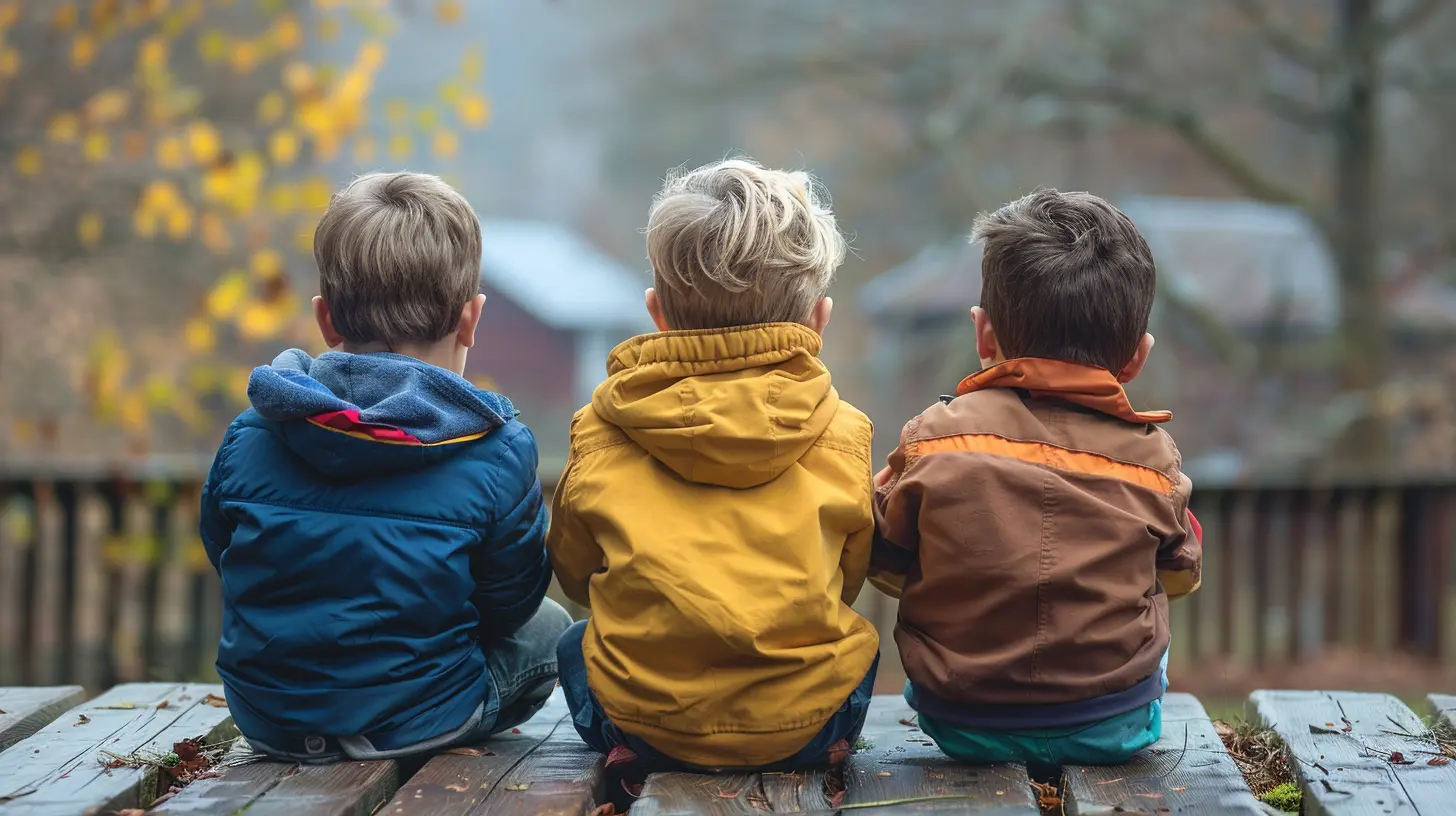
Encouraging Open Communication About Mental Health
One of the most powerful tools you can give your child is the ability to talk openly about their mental health. Encouraging them to share their feelings and experiences helps reduce the stigma around mental health and empowers them to advocate for themselves.How to Start the Conversation
It’s not always easy to talk about mental health, especially for kids. Here are a few tips to get the conversation going:- Lead by example: Be open about your own feelings and mental wellbeing. This shows your child that it’s okay to talk about emotions.
- Use age-appropriate language: Make sure the way you explain mental health is suitable for their age. Younger kids might benefit from simple explanations, like comparing their mental health to physical health.
- Create a safe space: Let your child know that their feelings are valid and that they won’t be judged. This will make them more likely to open up about their struggles.
Once your child feels comfortable talking about their mental health, they’ll be better equipped to explain their condition to friends, if they choose to do so. This can help their peers understand what they’re going through and provide the support they need.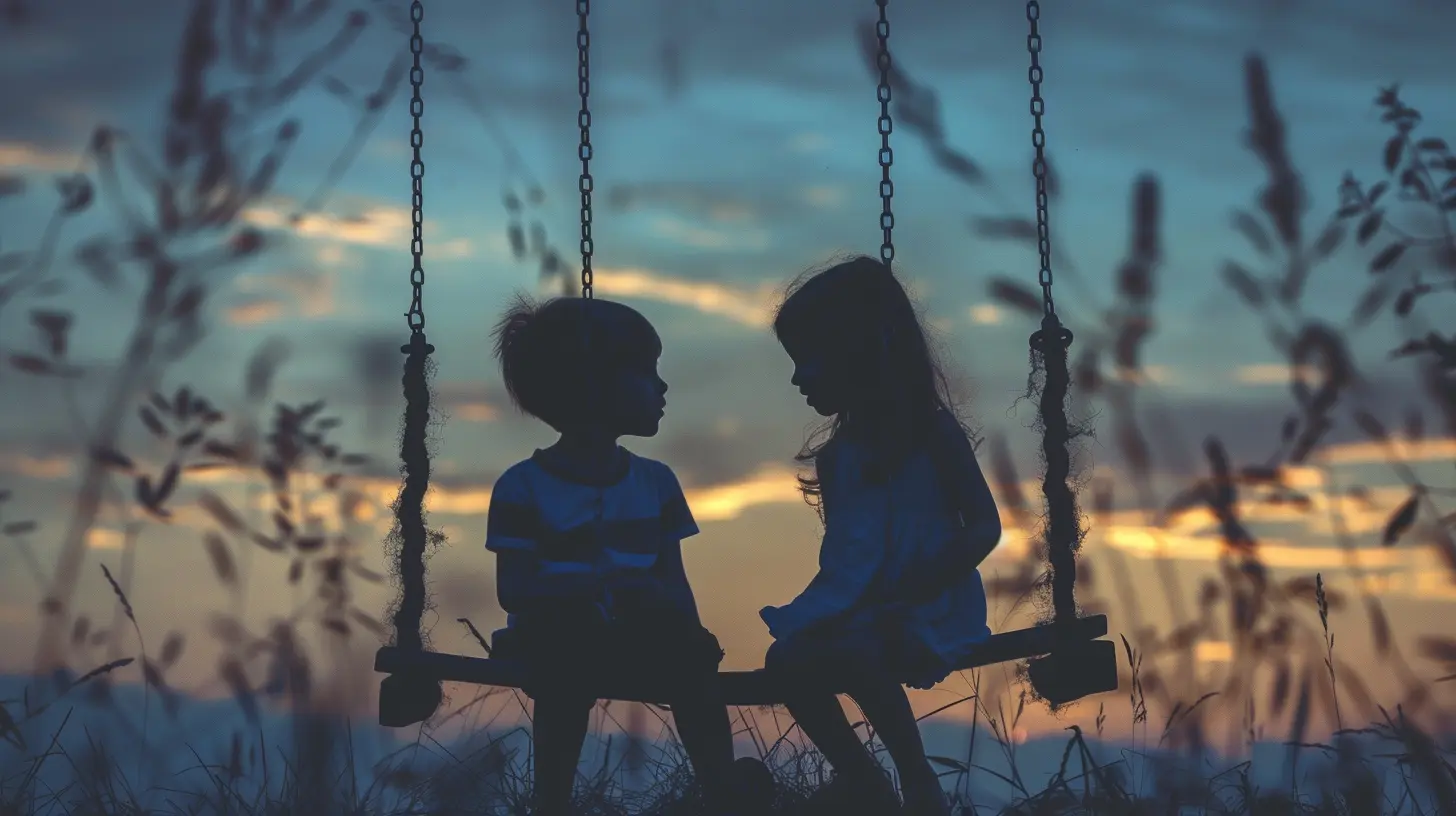
Teaching Emotional Regulation and Coping Skills
Friendships can be emotional rollercoasters, especially for children dealing with mental health challenges. Teaching your child how to manage their emotions and cope with difficult situations will help them navigate friendships more effectively.Strategies for Emotional Regulation
Here are some techniques you can teach your child to help them regulate their emotions:- Mindfulness: Encourage your child to practice mindfulness techniques, like deep breathing or meditation. These can help them stay calm and centered during social interactions.
- Cognitive-behavioral strategies: Help your child challenge negative thoughts and replace them with more positive ones. For example, if they’re feeling anxious about a playdate, guide them to reframe their thinking: “Instead of worrying about what could go wrong, let’s focus on what might go right.”
- Naming emotions: Teach your child to identify and name their emotions. By recognizing what they’re feeling, they’ll be better prepared to manage those emotions in social situations.
When your child learns how to handle their emotions, they’re less likely to lash out or withdraw from friendships when things get tough.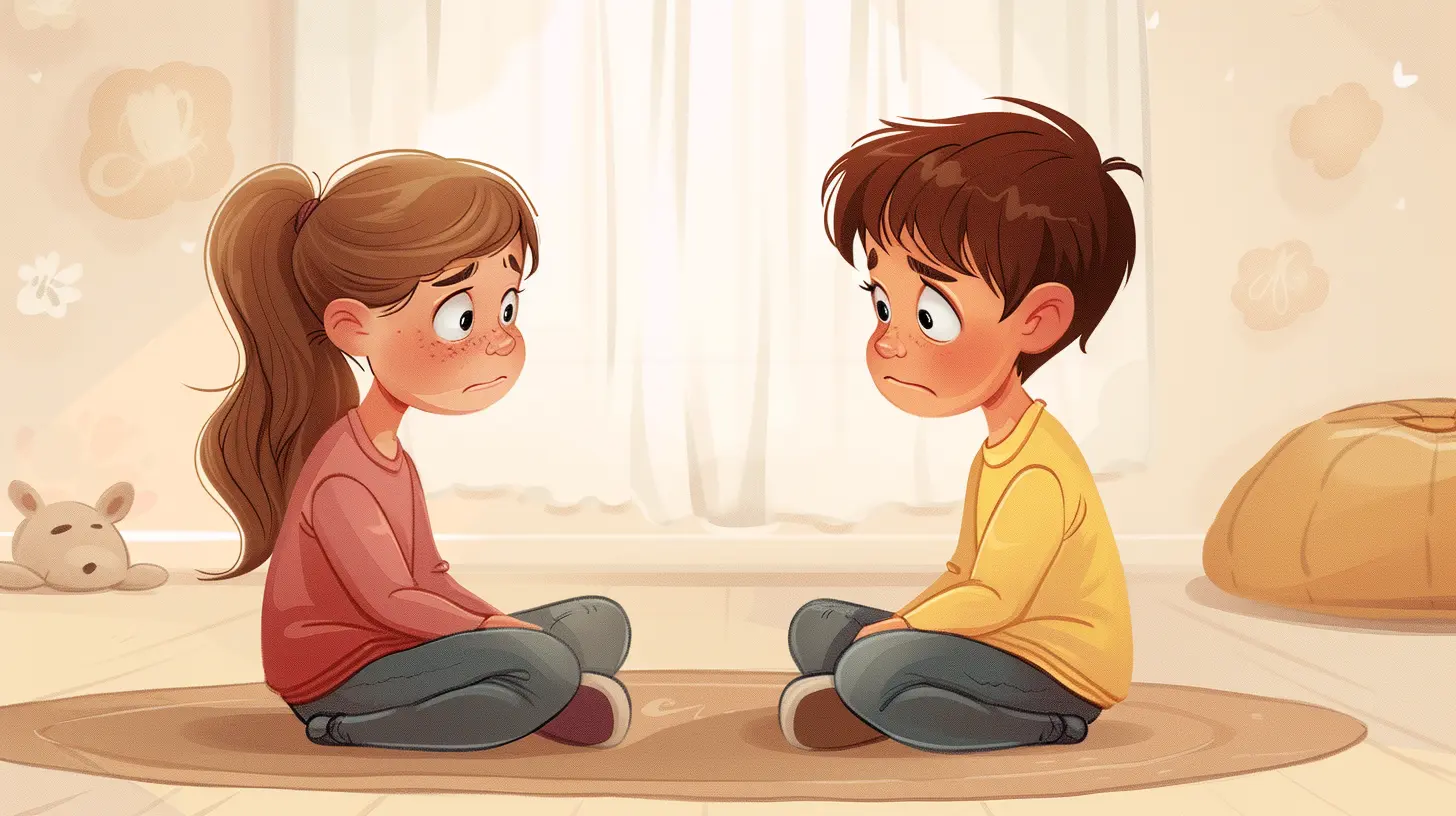
Helping Your Child Build Social Skills
For children with mental health challenges, social skills might not come naturally. They might have difficulty making friends, starting conversations, or understanding social norms. As a parent, you can help them develop these skills and gain the confidence they need to form meaningful connections.Practice Makes Perfect
Just like learning to ride a bike, developing social skills takes practice. Here are a few ways to help your child strengthen their social abilities:- Role-play: Act out different social scenarios with your child. For example, you can practice greeting a new friend, resolving a conflict, or asking someone to join in a game.
- Positive reinforcement: Celebrate your child’s social successes, no matter how small. Did they make eye contact with a friend? Give them a high-five! Positive reinforcement encourages them to keep trying.
- Teach empathy: Help your child understand the importance of empathy in friendships. Discuss how their actions and words can affect others, and encourage them to think about their friends’ perspectives.
Building social skills takes time, but with patience and practice, your child will become more comfortable in social situations.
Supporting Friendships Through Setbacks
Let’s face it—friendships aren’t always smooth sailing. Even the most well-adjusted kids face conflicts, misunderstandings, and drifting apart. For children with mental health challenges, these setbacks can feel even more intense.How to Handle Friendship Struggles
When your child experiences a conflict in a friendship, it can be tempting to jump in and fix the problem for them. But instead of solving it for them, try guiding them through the process of resolving the issue on their own. Here’s how:- Listen first: Before offering advice, listen to your child’s perspective. Let them vent their frustrations and feelings without interrupting.
- Help them problem-solve: Ask open-ended questions to guide your child toward a solution. For example, “How do you think you can make things better with your friend?” or “What would you like to say to fix the situation?”
- Encourage forgiveness: Sometimes, friendships will hit rough patches. Encourage your child to forgive their friends (and themselves) after mistakes and move forward. Teach them that it’s okay to make mistakes in friendships—it’s how we grow and learn.
It’s also important to remind your child that not every friendship will last forever, and that’s okay. Friendships can ebb and flow over time, and learning to accept that is a valuable life lesson.
Finding the Right Friend Group
Sometimes, the key to helping your child navigate friendships is finding the right friend group. Not all kids will understand or accept your child’s mental health challenges, and that can be painful. But there are kids out there who will.Seek Out Like-Minded Peers
Look for opportunities for your child to meet peers who share similar interests or experiences. This could be through:- Support groups: Some communities have support groups for children with mental health diagnoses. These groups can provide a safe space for your child to connect with others who understand what they’re going through.
- Extracurricular activities: Encourage your child to get involved in activities they enjoy, whether it’s a sport, art class, or club. Shared interests can be a great foundation for building friendships.
- Online communities: If your child feels more comfortable connecting with others online, look for safe, moderated online communities where they can meet kids with similar experiences.
Finding the right friend group can make a world of difference for your child. When they’re surrounded by supportive and understanding peers, they’ll feel more confident in their relationships.
How to Be a Support System for Your Child
As a parent, you play a crucial role in helping your child navigate friendships while managing their mental health. Here are some ways you can be a strong support system for them:- Be patient: Building friendships takes time, especially for kids with mental health challenges. Be patient and understanding as your child navigates the ups and downs.
- Offer guidance, not control: It’s natural to want to step in when your child is struggling with friendships, but try to guide them rather than control the situation. Trust that they’re capable of learning and growing.
- Keep an open line of communication: Let your child know that you’re always there to talk, no matter what. Sometimes, all they need is a listening ear.
- Celebrate their progress: Whether it’s making a new friend, handling a conflict with grace, or simply being brave enough to put themselves out there, celebrate your child’s social victories—no matter how small.
Conclusion
Helping your child navigate friendships with a mental health diagnosis can be a challenging journey, but it’s also an incredibly rewarding one. By providing them with the tools they need to manage their emotions, build social skills, and choose supportive peers, you’re setting them up for success in their relationships.Remember, every child is different, and what works for one may not work for another. The most important thing you can do is be there for your child, offering love, support, and encouragement as they grow and learn. With your help, they can thrive in their friendships and develop meaningful connections that enrich their lives.
all images in this post were generated using AI tools
Category:
Psychological Disorders In ChildAuthor:

Eliana Burton
Discussion
rate this article
10 comments
Tiffany McVaney
Empathy and open communication are key in guiding children through friendship challenges.
April 4, 2025 at 4:26 PM

Eliana Burton
Absolutely! Empathy and open communication are essential tools in supporting children as they navigate the complexities of friendships, especially when mental health challenges are involved.
Patricia Bryant
This article offers invaluable insights for parents navigating their child's friendships amidst mental health challenges. Understanding and supporting their social interactions can foster resilience and strengthen relationships, enhancing overall well-being. A must-read!
March 28, 2025 at 4:13 PM

Eliana Burton
Thank you for your kind words! I'm glad you found the insights helpful for supporting children's friendships and well-being.
Trinity Duke
This article offers invaluable insights for parents. Supporting our children through friendship challenges is vital, especially when mental health is involved. Thank you for addressing this important topic!
March 6, 2025 at 5:25 AM

Eliana Burton
Thank you for your thoughtful comment! I'm glad you found the insights valuable for supporting our children.
Lexi McQuillen
What a thoughtful and important article! Helping children navigate friendships while managing mental health challenges is vital. Your insights provide valuable support for parents and caregivers. Thank you for sharing!
March 1, 2025 at 3:48 AM

Eliana Burton
Thank you for your kind words! I'm glad you found the article helpful in supporting children and their caregivers.
Eliana Burton
Great insights! Open communication and patience are key to supporting children in building friendships.
February 22, 2025 at 6:01 AM

Eliana Burton
Thank you! I'm glad you found the insights helpful. Open communication and patience truly are essential in fostering those important connections.
Savannah Lawson
Navigating friendships is like trying to teach a cat to fetch—wonderfully chaotic! 🐱 With a sprinkle of patience, a dash of empathy, and a whole lot of love, you can help your child build bridges in their social jungle. Remember, even the quirkiest friendships can blossom in the most unexpected places! 🌈✨
February 20, 2025 at 5:16 PM

Eliana Burton
Absolutely! Embracing the chaos of friendships with patience and empathy can lead to beautiful connections. Every unique friendship is a valuable opportunity for growth! 🌟
Mika Franklin
Empowering children with mental health challenges fosters strong, supportive friendships.
February 20, 2025 at 4:30 AM

Eliana Burton
Absolutely! Empowering children with mental health challenges not only boosts their confidence but also enhances their ability to build meaningful and supportive friendships.
Talis Palmer
Friendship is like a garden—sometimes it needs a little extra care and sunshine! 🌼 Helping your child navigate relationships with a mental health diagnosis can bloom into beautiful connections. Let’s sprinkle some understanding and watch those friendships flourish! 🌟
February 18, 2025 at 4:23 AM

Eliana Burton
Absolutely! Nurturing friendships with understanding and support can truly help children thrive socially and emotionally. 🌱✨
Lysara Evans
Navigating friendships with a mental health diagnosis is no easy feat, but it’s vital for your child's growth. Embrace the complexity, foster open communication, and champion resilience. Your support is the key to unlocking their potential and building lasting connections.
February 16, 2025 at 4:39 PM

Eliana Burton
Thank you for your insightful comment! Supporting children in navigating friendships is indeed crucial for their growth and resilience. Open communication and empathy can truly make a difference.
Destiny McRae
This article offers invaluable insights for parents navigating their child's friendships amidst mental health challenges. Your guidance can empower children to build strong, supportive connections. Thank you for sharing these essential strategies that foster understanding and resilience!
February 15, 2025 at 4:36 AM

Eliana Burton
Thank you for your kind words! I'm glad you found the strategies helpful for supporting children in their friendships. Your feedback means a lot!
MORE POSTS

The Science of Developing a Growth Mindset for Achievement

How Mindfulness-Based Therapy Can Transform Your Mental Health

How to Foster a Growth Mindset
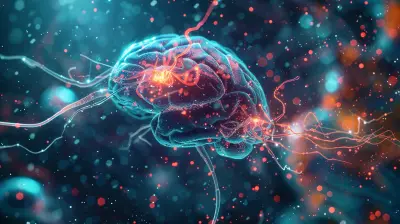
Neurogenesis: How Our Brains Grow New Neurons

Why Self-Acceptance Is the First Step Toward a Healthy Body Image

How Social Media Shapes Our Perception of Body Image

Virtual Reality Therapy: A New Frontier in Mental Health Treatment